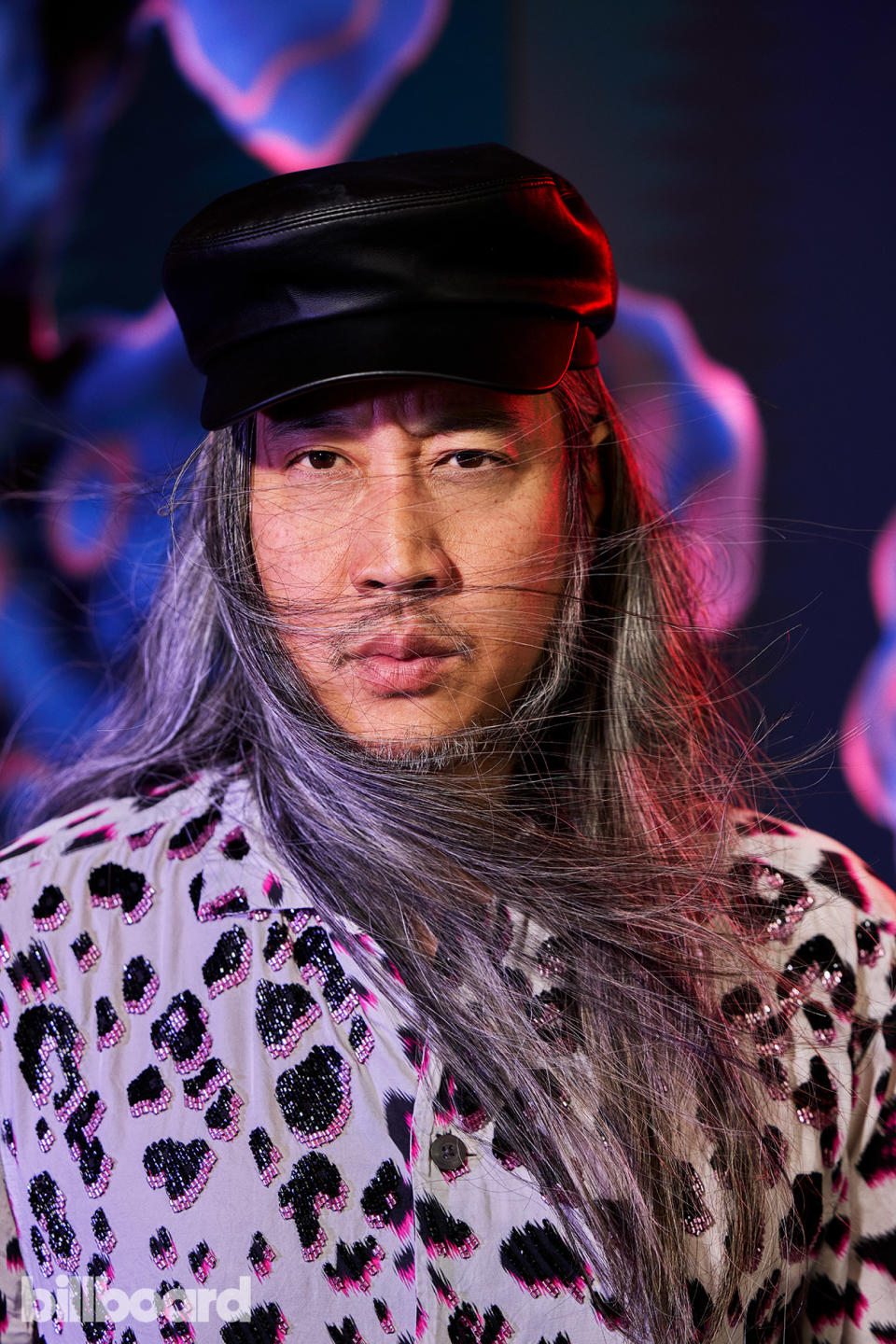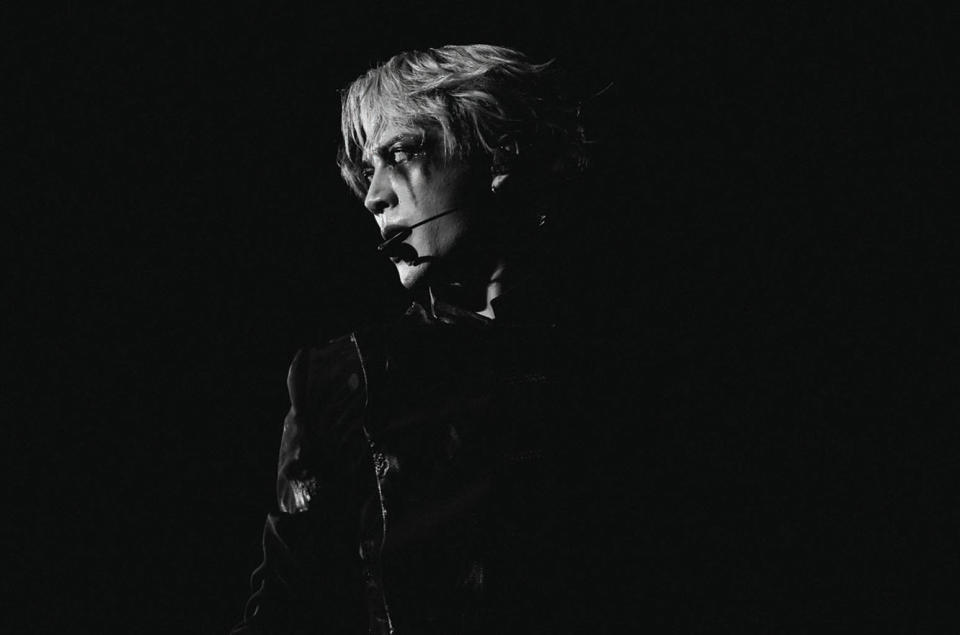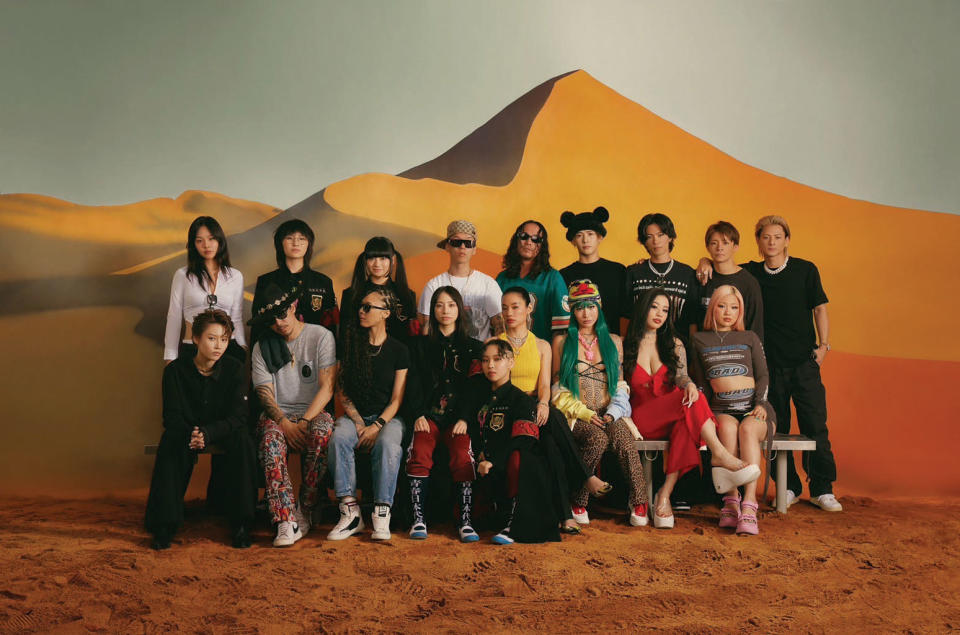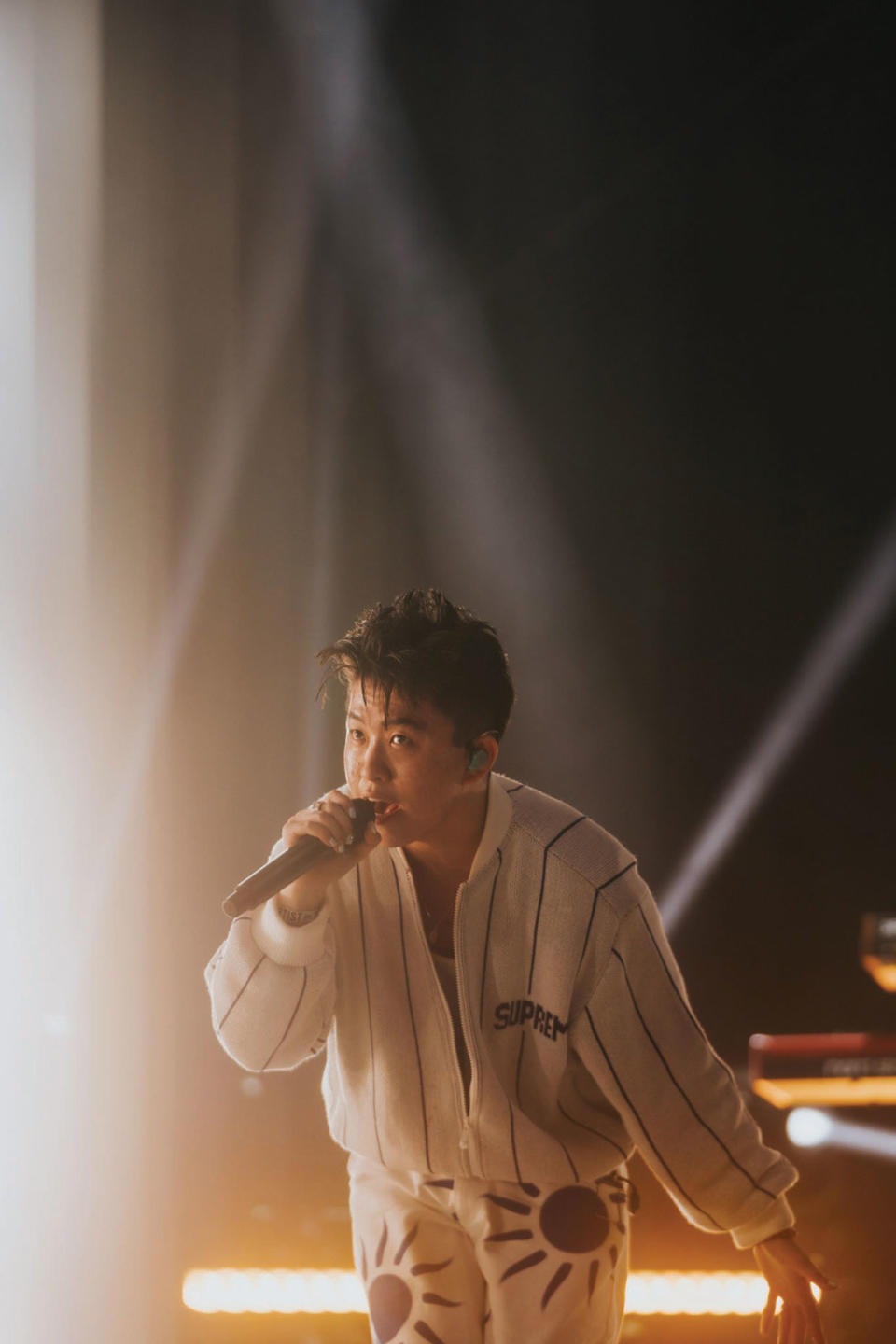How 88rising Took a Music Industry Hub for Asian Artists From ‘Far-Off Dream’ to Singular Reality
- Oops!Something went wrong.Please try again later.

As a student at the University of California, San Diego, Ollie Zhang oversaw the campus’ annual music festival and dozens of concerts throughout the year. Post-graduation, he co-founded the dance music brand Space Yacht in 2015. But he aspired to have a bigger, different kind of impact on the music business. “This idea of finding a place within the music industry for Asian artists to thrive always felt like a faraway concept to me,” he says. “A lot of the folks that I worked with and came up with in the music industry were Asian Americans. We all had this far-off dream that this is something that could be possible one day.”
So when Zhang (now 33) met Sean Miyashiro (now 42) in 2015, he says it was “serendipity” because Miyashiro was developing the very idea Zhang had imagined: carving out space for Asian and Asian American artistry to flourish. At the time, Miyashiro was helping VICE launch its dance music site, THUMP, but he soon realized, “If we created something to celebrate [our creative community], it would be better than anything else that exists.”
More from Billboard
88rising Founder Talks 2024 Coachella Showcase & Why It May Be Their Last
Premios Heat Awards Founder Diana Montes on How the Event Has Evolved Over 10 Years
Together, he and Zhang grew their shared vision into the company that became 88rising, the first and only hub for Asian artists in the music industry. 88rising launched with a small roster of clients Miyashiro was independently managing at the time, including choreographer-singer Brian Puspos, rappers Keith Ape and Dumbfoundead and dance artist josh pan. Zhang was at first, he believes, creative manager, then became chief of staff and is now head of artist development. (Under Miyashiro, he also manages two of 88rising’s key signings, singer-songwriter NIKI and elusive indie-alternative star Joji.) And while the company initially focused on hip-hop, Miyashiro immediately made clear that it was never intended to be for any one type of creative — or even be any one thing at all.
Today, 88rising is a label, management firm and global brand — with Miyashiro, who alongside Zhang spoke to Billboard during weekend one of Coachella at a private residence in Indio, Calif., teasing that yet another new division is on the way. The company’s wide-ranging label roster includes NIKI, Joji and rappers Rich Brian and Jackson Wang. Meanwhile, the 88rising brand has grown into a behemoth. In 2018, it held its inaugural Head in the Clouds festival at Los Angeles State Historic Park, and the event has since expanded to New York; Jakarta, Indonesia; Manila, the Philippines; and Guangzhou, China. In 2020, 88rising launched North America’s first 24/7 radio channel dedicated to Asian artists, on SiriusXM; in 2021, the company curated the soundtrack to the Marvel blockbuster Shang-Chi and the Legend of the Ten Rings; in 2022, it became the first label to score its own billing on Coachella’s lineup (returning in 2024); and, last year, it struck a global distribution deal with Sony Music.
“Sean creating 88rising from just an idea in his head to what it has become today is incredible,” Wang says. “The thing I immediately knew about Sean is his vibe was so real from day one. He cares about art deeply before anything else, which is so rare in this music game or entertainment industry. I knew I could trust him, and he immediately began guiding me into decisions not only about my music, but how I see myself as an artist and human being.”
But regardless of exactly what 88rising does, Zhang attests that the why has never, and will never, change. “The mission statement remains the same to this day: uplifting Asian youth culture around the world,” he says. “Everything that we’ve done is a manifestation of that same intent. Obviously, the stakes have gotten higher, but where we’re at now is not even what we could have necessarily dreamed of.”
Tell us about operating as a label and as a brand.
Sean Miyashiro: It never was intended to be a label. I didn’t know anything about what it was to distribute a record or whatever. And I probably still don’t, frankly speaking. Like, I still don’t know how royalties break down and all this stuff. The intention of 88rising was to be a celebratory platform, and just by nature of what we were putting out, which was really based on the distinct taste of the people that were working here, that became the brand. That became the beating heartbeat of what 88rising was. And then all these artists started hitting us up, just being like, “We like this energy. Let’s do something.” Being a label was a happy accident… And we have a great opportunity to continually do more, so we have to take responsibility in that opportunity because nobody has really come after us.

How does operating as a global brand entice artists, beyond only offering label services?
Ollie Zhang: There’s that little percentage of value that comes with [being] a brand, and I think that’s the intention. We do our best to make it incredibly clear that being here for an artist is advantageous and that you will be supported. Seeing [Japanese girl group] Atarashii Gakko!, for instance, use every single Head in the Clouds festival over the last couple of years, moving them slowly up and up the lineup and introducing them to different markets around the world — that is something that people definitely notice. And especially for an act like [them], the experience of being at that show instantly converts you into a fan. So how do we create as many opportunities for people to experience that as possible? That’s the advantage of being the platform that we are.
Miyashiro: When we’re in Asia, it’s crazy. I went to Indonesia with my family, and I was in one of those things that scale a mountain, and the operator is like, “You’re Sean.” When we go to Japan, when we go to China, it’s the same type of feeling — people know what we’re trying to do. And it’s by way of trying to be as consistent as possible. We have to push ourselves to stay ahead of this. I have anxiety; I never ever feel that we’re sitting pretty. It’s the complete opposite.
Many of 88rising’s wins are industrywide firsts, like the label’s now-annual Coachella billing. Why is the company able to pull off such feats?
Zhang: I think that’s a big credit to Sean and daring to believe that that’s possible. And obviously, a credit to the team that’s here and has been here over the last eight years to help execute that. And we couldn’t have done that as well without earning the trust and belief of artists that we look after, artists within the community, artists across the world. And it has all been iterative, right? It’s not necessarily a straight path, but it has always been moving in that direction.
Miyashiro: I love being able to [work with Japanese group] Number_i and new things because K-pop is already fully [established globally], times a thousand, and that’s amazing. [It’s] incredible what the whole industry there has built. But I want to showcase somebody from Cambodia or Vietnam. We love being first; it’s fun. Who wants to be second?
The 88rising Coachella set always features a variety of talent across countries and genres, including Japanese acts like Number_i this year. Considering that the label launched as a predominately hip-hop platform, what is now drawing a wider range of artists to the company?
Miyashiro: Fundamentally, we’re not business-driven or very good at business. Business is something that we have to learn by nature of, like, being able to make payroll. We’re inherently artist- and creative-driven. That’s what fuels everything. But the thing is, we’re so lucky to have built a relationship and a friendship and a bond with [our roster]. That’s what it really is. And that’s why nobody leaves, to be honest. We say this all the time: It needs to be so painfully obvious to the artist that [being on 88rising] is a benefit to them.
Zhang: It’s [about] aiding the artists on their own journey to find out what they want to communicate to the world or what kind of artists or musicians they want to be. NIKI is a great example of that. In the pandemic, she really started feeling like the kind of artist she wanted to be was going back to the singer-songwriter lane where she was making music in her bedroom in Jakarta. That’s why when she brought that original idea for [her second studio album] Nicole, it was a no-brainer in terms of wanting to embrace that and bring her creative partners that make sense.


What up-and-comers are you putting muscle behind this year?
Zhang: A big part of the 88rising set [at Coachella] was an eye toward great Japanese talent with Number_i, Atarashii Gakko! and Yoasobi. I don’t know if it was intentional, but that’s what we’ve rallied around in this specific moment.
Miyashiro: A lot of people have been like, “Oh, dude, there’s a lot of Japanese artists,” but it wasn’t a planned thing. It’s always by nature of who we might be talking to about something as small as making a song. And then it’s like, “Yo, come on over.” These are invaluable opportunities for artists. Just in culture, [the fact that] Number_i played Coachella is like, “What, where did that come from?” Because it’s like, how else would they get here? We love being able to deliver these things with ease … It’s like, “Yo, Paul [Tollett, president of Coachella promoter Goldenvoice], give us some real estate here. We’ll figure it out.” Literally, I was like, “Just make sure that we’re on the flyer.” I had no idea what we were going to do, but it’s organic. It’s like putting together a block party.
How do you see 88rising’s Coachella billing evolving?
Miyashiro: We’re going to do it again next year. We’re going to start earlier, and I have an idea … We’ve been doing a celebration, [offering] a glimpse of all these artists going back-to-back-to-back. I think that, in the future, we want to do something a bit more orchestrated and seamless with a theme. Kind of like a musical. Tell a light story in 75 minutes. We’re actually starting that process.
What else are you working on?
Miyashiro: Right now, there are so many aspiring artists, young people, deciding to make music. And with all the infrastructure that we built and the know-how, we have the opportunity to help a lot of them. We are going to create something called FAM, Future of Asian Music. It’s a distribution ecosystem for independent Asian artists.
There’s a lot of distribution mechanisms that somebody can use, but we’re going to be [creating] a really nice ecosystem of curation and recommendation through artists of influence. [There will be] a lot of live stuff within this, and it’s all around the ethos of DIY, independent, next-generation Asian music from all over Asia. We’re doing a ton of content around this from live programming, like our version of COLORS [the German music platform known for simple live recordings from up-and-comers around the world]. It’s like [a] from-your-bedroom-to-stardom-type of thing. We want to be a part of that conversation and journey every step of the way. This is a fire starter … and pretty soon, there’s hopefully a thousand artists distributed through us. I think that we will reach that.
Zhang: It’s fully realizing the original intent of 88rising. And more important for an artist nowadays is not the sheer process of getting your music on a platform, it’s how do you create content to put you in context with all the other artists that are uploading music every day? FAM is a vehicle to express that.


What subgenres do you think are shaping the future of Asian music?
Zhang: I think that ISOKnock — [comprising dance/electronic artists] ISOxo and Knock2 — are leading the charge on a major resurgence in electronic dance music here and around the world. They are just pure rock stars. And I think that they are actively revitalizing a scene that has been dormant. Both Sean and I come from the dance world, grew up in electronic music — so has a lot of our staff — so that’s something where once we saw how special it was, just from the ground floor, we wanted to jump on it. For them to be two Asian American kids from San Diego and for dance music being a big part of Asian American culture over the last couple of decades, that really means something that they’re at the forefront.
How do you view the impact of 88rising so far?
Miyashiro: It’s funny because when we started, some haters were like, “Oh, dude, you think you’re the only person that can do this?” I hear people in investment meetings saying, “We’re going to be the next 88rising for African music,” and that’s dope. I love hearing that. But in the Asian space, it hasn’t happened yet. I’m sure it will in some way, shape or form. And we love that. That was the point. If we cease to exist tomorrow, we can look back and have some peace and be like, “We really did something here.”
This story will appear in the April 27, 2024, issue of Billboard.
Best of Billboard
H.E.R. & Chris Brown 'Come Through' to No. 1 on Adult R&B Airplay Chart
Anne Wilson's 'I Still Believe in Christmas' Crowns Christian Airplay Chart

